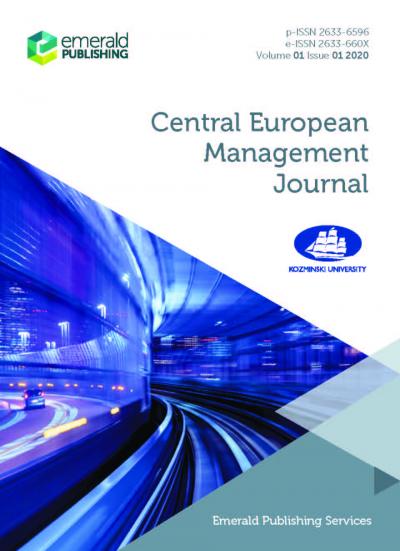Perception of Euro in Poland – Economic and Psychological Factors
Marcin Matyja
Kozminski University
Dorota Matyja
Hanisz Management
Krzysztof Przybyszewski
Kozminski University
Grzegorz Banerski
Millward Brown
2014 22 (4) Central European Management Journal
DOI 10.7206/mba.ce.2084-3356.115








